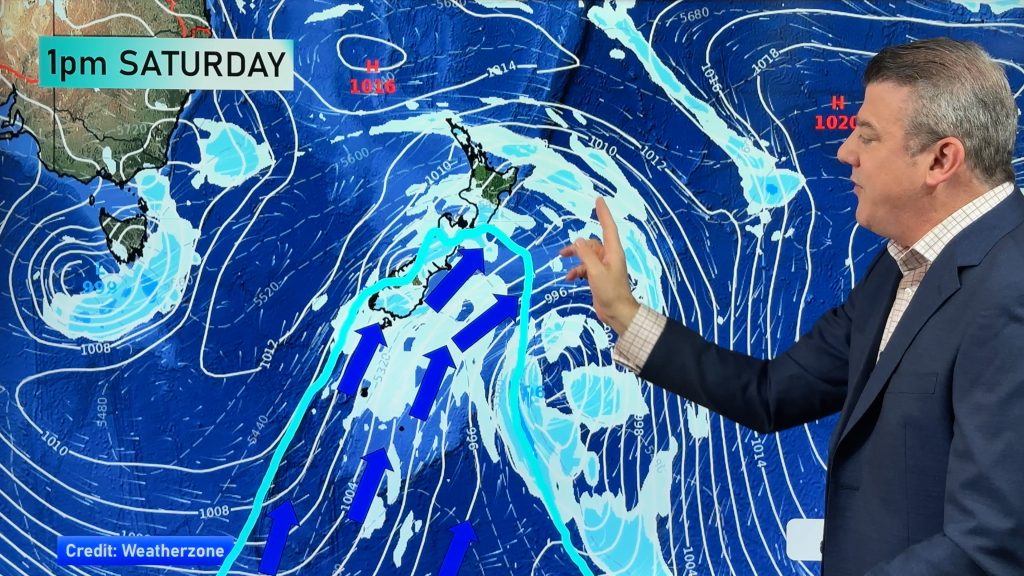
> From the WeatherWatch archives
Here in New Zealand, there is always a lot of talk about when the seasons actually change. Should they occur around the 21st of March, June, September and December? Or on the 1st of those months?
In the US, where the season changes are observed around the 21st of March, June, September and December there is not as much controversy. But there is still some mystery to it. Meteorologists in the US refer to the 1st of March, June, September and December as the beginning of the “meteorological season”.
American meteorologists use whole months to identify seasons (meteorological seasons). In the northern hemisphere:
- Meteorological spring takes place during March, April, and May
- Meteorological summer takes place during June, July, and August
- Meteorological autumn takes place during September, October, and November
- Meteorological winter takes place during December, January, and February
Of course, here on this side of the equator the seasons are reversed.
An Astronomical seasonal change bases the season on the date of the corresponding equinox or solstice.
In other words, astronomical seasons change on the days the Earth is tilted closest or furthest from the sun (solstices), and those on which the sun is directly over the equator (equinoxes). In the northern hemisphere:
- Astronomical spring begins on the spring equinox
- Astronomical summer begins on the summer solstice
- Astronomical autumn begins on the autumnal equinox
- Astronomical winter begins on the winter solstice
So which is better? That question will probably never be answered. There are pluses and minuses to both methods. In addition, those on both sides of the controversy can be very passionate about what qualifies as the start of a particular season.
But one thing is for sure, New Zealand isn’t the only country that wonders if there isn’t a better way to keep track of the seasons.
Homepage/ David Hawke
-By Howard Joseph, WeatherWatch.co.nz
Comments
Before you add a new comment, take note this story was published on 2 Mar 2013.






Add new comment
Ian Cooper on 2/03/2013 10:38pm
As I have pointed out in previous discussions on this subject, first and foremost the only reason that we have seasons is due to the tilt of the earth’s axis in relation to its oval orbit around the sun. Therefore the cardinal dates are the soltices and equinoxes as you have mentioned.
This whole thing would not have been an issue if the people who have had the power to sort out our calendar problems over the past few millemia starting with the Romans and then their inheritors the Roman Catholic church, had focussed on aligning the calendar with those dates as I believe it once was, i.e. the year started on March 1st which was the northern hemisphere vernal (spring) equinox at the time. Inaccuracies in the calendar saw the equinox drift through to around the 21st of March (the northern winter solstice was believed to be Dec 25th 2,000 years ago, hence our celebration of Christmas on that day).
When the church found that the Julian calendar in use had a slow error that meant that Easter would end up out of ‘season’ they got the best minds together to come up with the Gregorian Calendar (named after the Pope at the time) which we still use today. Unfortunately with the focus solely on keeping Easter in the northern spring the opportunity to align the calendar to the start of the seasons was missed.
Jump forward to the 20th century and modern day scientists, in this instance meteorologists, try to correct the situation with an expedient compromise. The part I fail to understand when it comes to the ‘Meteorological Seasons’ is why is December a summer month on this side of the equator when March is on average warmer and sunnier? Not only would starting the meterological summer on January 1st be closer to the summer solstice (Dec 22nd on average) it would get rid of an unnecessary transition over two physical years and be far more symmetrical!
Ian Cooper, Glen Oroua, Manawatu.
Reply
WW Forecast Team on 2/03/2013 11:01pm
Thanks for the background information Ian
We tend to agree with you about March being warmer than December overall and often the last month of the year is springlike and March ( particularly across the North Island) can be more settled and warmer.
New Zealand and Australia are also at odds with so much of the world in recognising seasons which also adds to the confusion.
Thanks again for your input.
WW
Reply